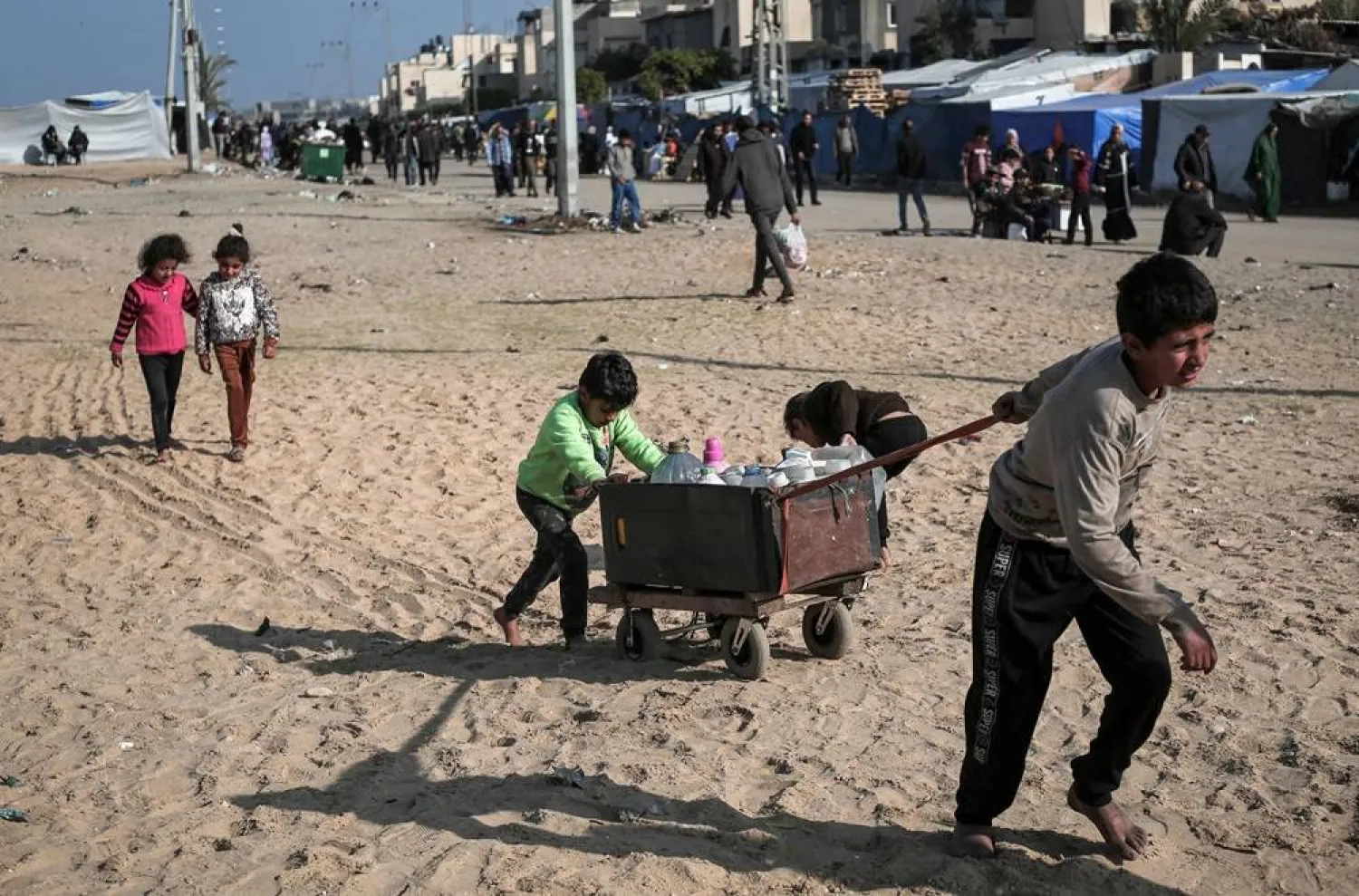Aid groups this week have made their first deliveries of food in a month to northern Gaza, where the UN has warned of worsening starvation among hundreds of thousands of Palestinians amid Israel’s ground operations.
A convoy of 31 trucks carrying food entered northern Gaza on Wednesday, the Israeli military office that oversees Palestinian civilian affairs said. The office, known by the acronym COGAT, said nearly 20 other trucks entered the north on Monday and Tuesday. Associated Press footage showed people carrying sacks of flour from the distribution site.
As of Sunday, the UN had been unable to deliver food to northern Gaza since Jan. 23, according to Philippe Lazzarini, the head of UNRWA, the UN agency for Palestinian refugees that has led the aid effort during the war.
On Feb. 18, the World Food Program attempted a delivery to the north for the first time in three weeks but much of the convoy’s cargo was taken on route by desperate Palestinians, and it was only able to distribute a small amount in the north.
Northern Gaza has largely been cut off and much of it has been leveled since Israeli ground troops invaded in late October. Several hundred thousand Palestinians are believed to remain there, and many have been reduced to eating animal fodder to survive.
The UN says 1 in 6 children under 2 in the north suffer from acute malnutrition and wasting, and that 576,000 people across Gaza – a quarter of the population – are a step away from famine.
Since launching its assault on Gaza following Hamas’ Oct. 7 attack, Israel has barred entry of food, water, medicine and other supplies except for a trickle of aid entering the south from Egypt at the Rafah crossing and Israel’s Kerem Shalom crossing.
Despite international calls to allow in more aid, the number of supply trucks entering has dropped dramatically in recent weeks.
The UN has called for Israel to open crossings in the north to aid deliveries and guarantee safe corridors for convoys.









